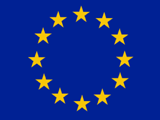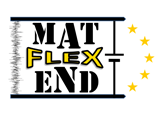Flexible energy harvesting devices and related durable materials
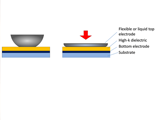
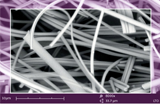
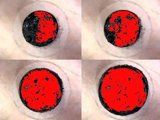
Fraunhofer IZM leads the newly started FP7 MATFLEXEND project, which will provide wearable, flexible energy harvesters that can be manufactured in a low-cost printing process, and durable materials for such purpose. First results will be shown at the IDTechEx “Energy Harvesting & Storage 2014” conference which takes place in Berlin April 1-2. IZM will give a talk on integrated micro batteries at the conference and host a conference tour in its facilities.
Applications and Technology
These harvesters will be aimed at smart wearables, including wearables in medical sensing or in other consumer products. The new harvesters will be optimized for the low-frequency timing patterns and low to medium forces that arise in such applications, and thus may be advantageously integrated into consumer garments, or into an active insole for shoes.
Other relevant applications include security clothing; or technical textiles where electronic sensing may be desirable, but cabling is inconvenient or impractical. Future internet of things applications may also benefit from these autarkic power supply components.
MATFLEXEND harvesters will convert mechanical deformation into energy by using an innovative capacitive converter exploiting a capacitor´s deformation: such that capacity changes permit converting mechanical energy into usable electricity; and an energy storage device realized by a lithium-ion battery featuring an inherently flexible design. Advantages sought in the proposed technology include superior energy conversion efficiency and mechanical compliance, as well as manufacturability in a print-like continuous process, thus reducing manufacturing cost significantly.
MATFLEXEND partners and roles
Besides Fraunhofer IZM, the MATFLEXEND consortium comprises two universities, two more research organizations, one larger industry partner and four SMEs.
Fraunhofer IZM, a known leader in electronic packaging, will lead the design and development of, firstly, the energy harvester which translates deformation energy into electrical energy; secondly, a novel, flexible-by-design secondary lithium-ion battery with coplanar electrodes. IZM will integrate these components into a single device.
University partners Univ. Vienna, Austria and Imperial College London, UK will cooperatively develop innovative materials such as highly durable elastomers, novel multi-phase battery separators, and high-k dielectrics.
CETEMMSA, a Spanish research organization, will investigate production of the device, including its mass manufacturability by printing. LAAS-CNRS of France will contribute an innovative process for electrophoretic deposition (EPD) for a variety of battery electrode materials to be used in the project.
Industry partner VARTA Microbattery GmbH will test and assess industrial manufacturability of the batteries.
The participating SMEs, Comcard GmbH of Germany will work towards integration of such harvesters into a smart card sytem. PARDAM of Czekoslovakia will supply nanomaterials for lithium batteries and high-k dielectrics; SMARTEX of Italy, will design wearable applications in cooperation with its network in the fashion industry, and Anitra Technologies UG of Germany will lead dissemination including IPR work and workshops.
MATFLEXEND´s R+I will thus contribute towards mass-manufacturable, low cost energy harvesting systems, as well as towards applications for such systems. Materials-science spinoffs will include new conductive and non-conductive elastomers, high-k dielectrics, and innovative methods for depositing patterns of such materials.
Timelines and Acknowledgment
MATFLEXEND will run from October 2013 to September 2016.
MATFLEXEND is co-financed by the EU´s DG INFSO under the 7th Framework Programme.
Last modified:
 Fraunhofer Institute for Reliability and Microintegration IZM
Fraunhofer Institute for Reliability and Microintegration IZM